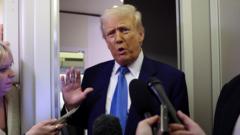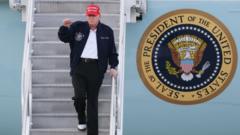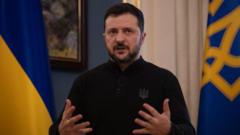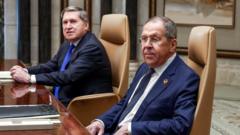Following a deadly attack in Munich, German political discourse has shifted focus to U.S. foreign policy directions under the Trump administration, raising concerns about the implications for Germany’s elections and international relations.
Germany's Political Climate Shifts Amid U.S. Foreign Policy Controversies

Germany's Political Climate Shifts Amid U.S. Foreign Policy Controversies
A tragic attack by an Afghan refugee in Munich is overshadowed by developments related to the Trump administration's foreign policy amid an ongoing election campaign.
Chancellor Olaf Scholz of Germany addressed a rally in Munich as the nation grappled with the recent aftermath of a violent incident and foreign policy distractions.
On Thursday, an Afghan refugee deliberately rammed a vehicle into a crowd, resulting in the tragic deaths of a 2-year-old girl and her mother, alongside injuries to nearly 40 other people. The police have classified the assailant's actions as motivated by an "Islamist orientation."
While such a significant attack typically would dominate headlines in a nation where immigration is a contentious electoral issue, German media and political figures instead shifted their attention to U.S. foreign policy discussions, particularly those from the Trump administration.
The Munich Security Conference, held shortly after the attack, became a platform for numerous delegations to convene and discuss pressing international issues. However, many German attendees were frustrated by what they perceived as attempts by Trump officials to influence the German electoral landscape.
Vice President JD Vance's remarks at the conference, calling on German politicians to prevent a far-right party from increasing its influence, sparked accusations of foreign imposition in domestic politics. This sentiment was compounded by concerns that the U.S. administration appeared to be sidelining Europe in its engagements regarding ongoing conflict situations, such as in Ukraine.
German political leaders returned from the conference with heightened anxiety about the transatlantic relationship and the implications of the U.S. political climate on Germany’s political landscape ahead of crucial parliamentary elections. As the nation grapples with issues of migration and security, the reaction to the tragic incident and the foreign policy distractions underscore the complexities of contemporary German politics.






















